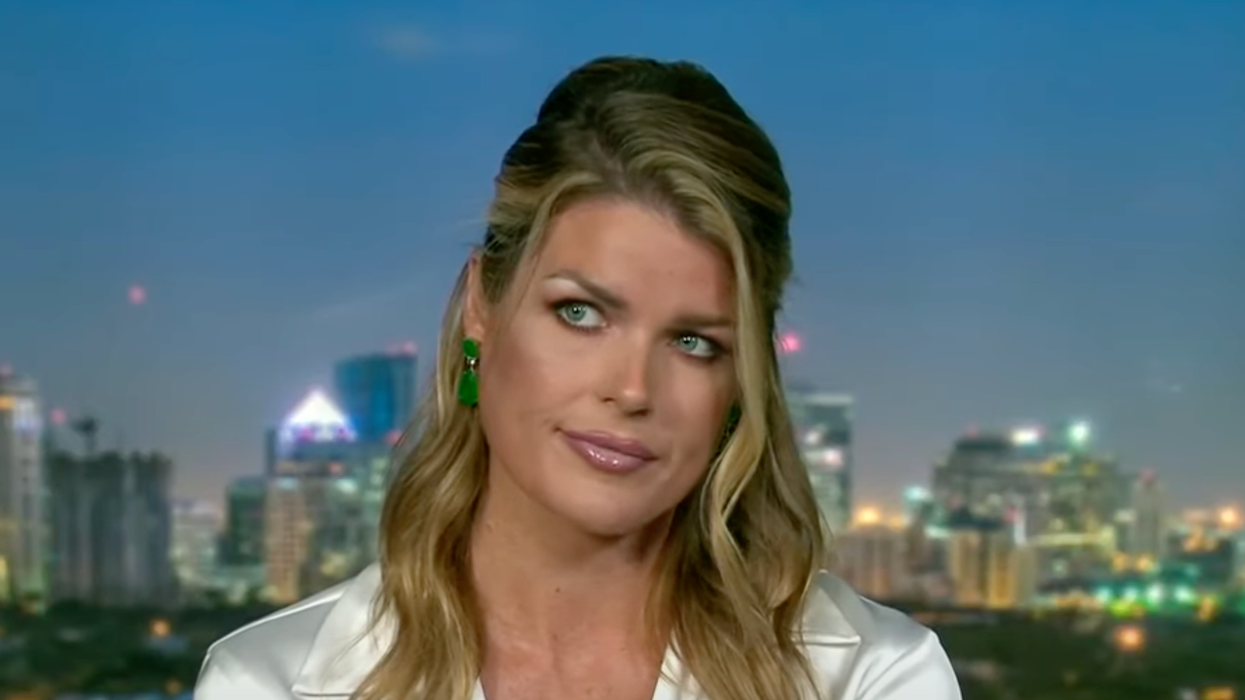Lindsey Halligan, the interim U.S. Attorney in the Eastern District of Virginia chosen by President Donald Trump, directly messaged legal journalist Anna Bower on the Signal messaging app about an ongoing federal prosecution she’s overseeing – behavior legal experts say breaks long‑standing norms for how prosecutors communicate with the press.
Bower reported in an article published by Lawfare Monday that on Saturday, Oct. 11, she received a text: “Anna, Lindsey Halligan here.” Bower verified Halligan's identity by getting a correct answer on where they first met and who they were with, and by finding her cell phone number via public records and seeing that Signal immediately associated the number with the "Lindsey Halligan" who messaged her.
Over the next 33 hours, Halligan messaged her repeatedly about the case against New York Attorney General Letitia James.
According to Bower, Halligan criticized her reporting (and her summaries of the New York Times' reporting) and included references to grand jury matters – even while acknowledging she could not disclose protected information.
Bower writes that “she never said a word suggesting that she was not ‘on the record.’”
"I reminded Halligan that it was she who had approached me to tell me that I’d compounded or repeated something inaccurate in the Times’s account of Thompson’s testimony," Bower wrote, recalling that she told Halligan: "I am happy to correct it, but I can’t do so without a sense of what I supposedly got wrong."
'Continue to do what you have been and you’ll be completely discredited when the evidence comes out,' Halligan replied.
"I still wasn’t sure what I’d supposedly gotten wrong, or why she’d contacted me, or what to make of it all," Bower wrote.
The journalist noted that federal prosecutors can typically engage with media, but Bower and her editor say they couldn’t recall a U.S. attorney reaching out personally to a reporter about a case that the prosecutor is actively handling.
The sequence – informal texting, self‑initiated outreach, and mention of grand jury matters – has raised concern among former officials and journalists.
Halligan was installed after her predecessor, Erik Siebert (who Trump appointed to the Eastern District of Virginia in May) declined to bring the case against James. Critics say her appointment and the timing suggest political motivations.
The text exchange underscores three major worries: Whether the prosecution is free from political influence, whether standard grand jury secrecy is being upheld and whether conventional channels of communication between prosecutors and journalists have been sidestepped.
While nothing in the messages proves impropriety on its own, the episode highlights a changing dynamic — where prosecutorial discretion, presidential influence and public communications converge in unexpected ways.
The correspondence underscores how Halligan may be operating not simply as an independent prosecutor but as someone aligned with the president’s political agenda. Second, by invoking grand jury language, the communications touch on one of the most closely guarded aspects of federal criminal procedure — raising concerns about norms and prosecutorial discretion.
Legal commentators already have expressed concerns that Halligan — a former insurance attorney who has never prosecuted a case — lacks necessary experience and that her appointment signals a broader shift in how politically charged cases are being handled.


